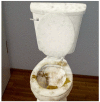Efficacy of exposure and response prevention therapy in mixed reality for patients with obsessive-compulsive disorder: study protocol for a randomized controlled trial
- PMID: 37055854
- PMCID: PMC10100604
- DOI: 10.1186/s40359-023-01116-3
Efficacy of exposure and response prevention therapy in mixed reality for patients with obsessive-compulsive disorder: study protocol for a randomized controlled trial
Abstract
Many patients with obsessive-compulsive disorder (OCD) do not receive cognitive behavioral therapy with exposure and response prevention (first line treatment for OCD), for example, due to patients' fear of the exposure and reservations of the therapists. Technology-supported exposure (e.g., exposure therapy with response prevention in mixed reality [MERP]) for patients with OCD may help to overcome this obstacle. Building upon findings of our pilot study objectives of this study are to evaluate the efficacy, expectations of treatment success, feasibility, and acceptance of MERP as well as to identify possible limitations. In total, 64 outpatients with contamination-related OCD will be recruited and randomized to one of two conditions: MERP (six sessions in six weeks) and self-guided exposure therapy (six exercises in six weeks). Participants will be assessed before (baseline), after the six-week intervention period (post), as well as three months after post assessment (follow-up) regarding symptomatology (Yale-Brown Obsessive Compulsive Scale; Y-BOCS), their subjective evaluation of MERP (acceptance) and sense of presence. The planned study is the first to investigate MERP in patients with OCD.
Keywords: Augmented reality; CBT; Exposure therapy; Mixed reality; OCD; Psychotherapy.
© 2023. The Author(s).
Conflict of interest statement
The authors declare that they have no competing interests.
Figures
Similar articles
-
Exposure Therapy in Mixed Reality for Obsessive-Compulsive Disorder: A Randomized Clinical Trial.JAMA Netw Open. 2025 May 1;8(5):e2511488. doi: 10.1001/jamanetworkopen.2025.11488. JAMA Netw Open. 2025. PMID: 40392553 Free PMC article. Clinical Trial.
-
Mixed results for exposure and response prevention therapy in mixed reality for patients with contamination-related obsessive-compulsive disorder: A randomized controlled pilot study.J Clin Psychol. 2023 Oct;79(10):2317-2336. doi: 10.1002/jclp.23550. Epub 2023 Jun 15. J Clin Psychol. 2023. PMID: 37317567 Clinical Trial.
-
Virtual reality exposure and response prevention in the treatment of obsessive-compulsive disorder in patients with contamination subtype in comparison with in vivo exposure therapy: a randomized clinical controlled trial.BMC Psychiatry. 2022 Nov 28;22(1):740. doi: 10.1186/s12888-022-04402-3. BMC Psychiatry. 2022. PMID: 36443695 Free PMC article. Clinical Trial.
-
[Virtual reality exposure therapy for post-traumatic stress disorders, obsessive-compulsive disorders and anxiety disorders: Indications, added value and limitations].Encephale. 2020 Aug;46(4):293-300. doi: 10.1016/j.encep.2020.01.005. Epub 2020 Mar 6. Encephale. 2020. PMID: 32151452 Review. French.
-
Acceptability, feasibility, and efficacy of Internet cognitive behavioral therapy (iCBT) for pediatric obsessive-compulsive disorder: a systematic review.Syst Rev. 2019 Nov 20;8(1):284. doi: 10.1186/s13643-019-1166-6. Syst Rev. 2019. PMID: 31747935 Free PMC article.
Cited by
-
Exposure Therapy in Mixed Reality for Obsessive-Compulsive Disorder: A Randomized Clinical Trial.JAMA Netw Open. 2025 May 1;8(5):e2511488. doi: 10.1001/jamanetworkopen.2025.11488. JAMA Netw Open. 2025. PMID: 40392553 Free PMC article. Clinical Trial.
References
-
- Miegel F, Jelinek L, Moritz S, Lohse L, Yassari AH, Bücker L. Exposure and response prevention therapy in mixed reality for patients with contamination-related obsessive-compulsive disorder: A randomized controlled pilot study. submitted. 2022 - PubMed
-
- American Psychiatric Association. Diagnostic and Statistical Manual of Mental Disorders. American Psychiatric Association; 2013.
-
- Kim SK, McKay D, Taylor S, Tolin D, Olatunji B, Timpano K et al. The structure of obsessive compulsive symptoms and beliefs: A correspondence and biplot analysis.J Anxiety Disord. 2016 Mar1;38:79–87. - PubMed
-
- Fawcett EJ, Power H, Fawcett JM. Women are at greater risk of OCD than men: a meta-analytic review of OCD prevalence worldwide. J Clin Psychiatry. 2020 Aug 1;81(4). - PubMed
Publication types
MeSH terms
Grants and funding
LinkOut - more resources
Full Text Sources
Medical



